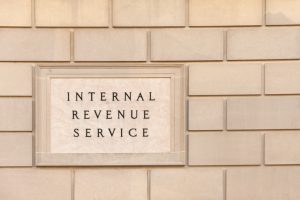
However, in order for this to work for you, specific requirements must be met. It is not a given that you can discharge IRS tax debt in a bankruptcy. Read on to learn more and then reach out to The Law Offices of Paul Y. Lee at 951-755-1000 if you have questions.
Factors that affect whether or not you can use bankruptcy to discharge taxes
There are a number of factors that will affect whether or not you can discharge debt in a bankruptcy. They include how old the debt is and when the tax was originally assessed. In the event that it meets certain criteria, it could not only be dischargeable in Chapter 13, but it may be dischargeable in Chapter 7 bankruptcy as well.
What does it mean when a debt is dischargeable?
When we say a debt is dischargeable, it means that you won’t be responsible for the debt after your case is discharged by the court. If you get your tax debt discharged, then the IRS can’t come after you to collect their debt. The ruling of the bankruptcy court trumps that of any tax authority. Many other types of debts are discharge, like business loans, personal loans, medical bills, credit card bills, and utility bills.
The limits of dischargeable tax debt
The only tax debt that’s potentially dischargeable is tax debt. In most cases, other types of tax debts – such as payroll taxes – aren’t dischargeable. In order for federal income tax to be dischargeable, the following must be true:
- You did not commit fraud, including tax evasion and other tax crimes.
- You must have filed income tax returns for at least two years before the date you filed for bankruptcy.
- The tax must have been due three years before the date you filed for bankruptcy
One of these statements must also be true:
- The IRS didn’t asses the tax
- The IRS assessed the tax at least 240 days before the date you filed for bankruptcy.
This is not a situation you should try to navigate on your own
If you have back taxes and you want them discharged in a bankruptcy then it’s imperative that you speak with a bankruptcy attorney. These situations are very particular and one misstep could result in the inability to include these taxes.
If you’re considering bankruptcy and you need help, The Law Offices of Paul Y. Lee is here for you. Reach out to us at 951-755-1000 to request you free bankruptcy consultation. We will take the time to learn about your situation and will over personalized advice on your best options. This is not a fun situation for anyone but it can be a simple process if you let us take care of it for you.

